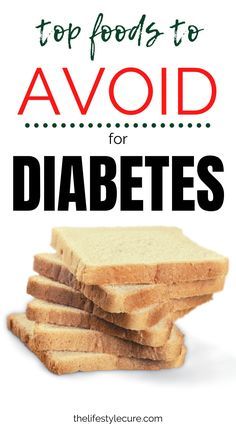Understanding a Growing Health Concern- Diabetic
Understanding a Growing Health Concern- Diabetic
Diabetes is a chronic medical condition that occurs when the body is unable to properly regulate blood sugar (glucose) levels. This essential function is typically managed by insulin, a hormone produced by the pancreas. Insulin allows cells to absorb glucose from the bloodstream, converting it into energy. However, in individuals with diabetes, this process is disrupted, leading to elevated blood sugar levels.
There are two main types of diabetes: Type 1 and Type 2.
Type 1 Diabetes:
This form of diabetes is characterized by the immune system attacking and destroying the insulin-producing cells in the pancreas. People with Type 1 diabetes must rely on insulin injections or an insulin pump to manage their blood sugar levels. This type is often diagnosed in childhood or adolescence and is not preventable.
Type 2 Diabetes:
Type 2 diabetes is more common and typically develops later in life, although it can occur at any age. In this type, the body either doesn't produce enough insulin or becomes resistant to its effects. Lifestyle factors, such as diet, physical activity, and genetics, play a significant role in the development of Type 2 diabetes. While it is largely preventable through healthy lifestyle choices, its prevalence is rising globally, posing a considerable public health challenge.
Gestational Diabetes:
Gestational diabetes occurs during pregnancy when the body cannot produce enough insulin to meet the increased needs. This condition requires careful management to protect both the mother and the baby.
Uncontrolled diabetes can lead to a range of complications, affecting the heart, kidneys, eyes, and nerves. Therefore, proper management and monitoring are crucial to prevent long-term health issues.
Managing diabetes involves a combination of lifestyle modifications, such as a balanced diet, regular physical activity, and medication (including insulin when necessary). Regular monitoring of blood sugar levels, maintaining a healthy weight, and routine medical check-ups are essential components of effective diabetes management.
As the prevalence of diabetes continues to rise worldwide, understanding the condition, its risk factors, and preventive measures becomes increasingly vital. In this context, education, awareness, and ongoing research play crucial roles in empowering individuals to make informed choices about their health and well-being.
List of foods that are generally considered good for individuals with diabetes and a list of foods that are often recommended to be avoided. However, it's important to note that individual responses to food can vary, and it's always a good idea for individuals with diabetes to work closely with their healthcare team to create a personalized meal plan. Additionally, calorie measurements can vary depending on factors like preparation methods and portion sizes.
Foods to be Eaten by Diabetic Patients:
1. Leafy Greens:
- Spinach, Kale, Swiss Chard, etc.
- Calories: Negligible
2. Berries:
- Blueberries, Strawberries, Raspberries
- Calories: Varies (e.g., 1 cup of strawberries has about 50 calories)
3. Whole Grains:
- Quinoa, Brown Rice, Oats, Barley
- Calories: Varies (e.g., 1/2 cup cooked quinoa has about 111 calories)
4. Fatty Fish:
- Salmon, Mackerel, Sardines
- Calories: Varies (e.g., 3 oz of salmon has about 206 calories)
5. Nuts and Seeds:
- Almonds, Walnuts, Chia Seeds, Flaxseeds
- Calories: Varies (e.g., 1 oz of almonds has about 160 calories)
6. Legumes:
- Chickpeas, Lentils, Black Beans
- Calories: Varies (e.g., 1/2 cup cooked lentils has about 115 calories)
7. Greek Yogurt:
- Low-fat or Non-fat options
- Calories: Varies (e.g., 1 cup of plain Greek yogurt has about 100 calories)
8. Tomatoes:
- Fresh or in sauces (watch added sugars)
- Calories: Negligible
9. Avocado:
- Healthy monounsaturated fats
- Calories: Varies (e.g., 1/2 medium avocado has about 120 calories)
 |
10. Eggs:
- Rich in protein and healthy fats
- Calories: Varies (e.g., 1 large egg has about 68 calories)
11. Cauliflower:
- Low-carb alternative
- Calories: Negligible
12. Cinnamon:
- May help improve insulin sensitivity
- Calories: Negligible
13. Broccoli:
- High in fiber and vitamins
- Calories: Negligible
14. Garlic:
- May have potential health benefits
- Calories: Negligible
15. Olive Oil:
- Healthy monounsaturated fats
- Calories: Varies (e.g., 1 tablespoon has about 120 calories)
16. Sweet Potatoes:
- Source of complex carbohydrates
- Calories: Varies (e.g., 1 medium sweet potato has about 103 calories)
17. Cottage Cheese:
- High in protein, low in carbohydrates
- Calories: Varies (e.g., 1/2 cup has about 110 calories)
18. Green Tea:
- May have potential health benefits
- Calories: Negligible
19. Bell Peppers:
- Rich in vitamins and low in calories
- Calories: Negligible
20. Mushrooms:
- Low in carbohydrates
- Calories: Negligible
Foods to be Avoided by Diabetic Patients:
1. Sugar-Sweetened Beverages:
- Soda, Fruit Punch, Sweetened Teas
- Calories: High
2. Processed Snacks:
- Chips, Cookies, Pastries
- Calories: High
3. White Bread and Pasta:
- High glycemic index, leading to rapid blood sugar spikes
- Calories: Varies
4. Fried Foods:
- French Fries, Fried Chicken
- Calories: High
5. Full-Fat Dairy:
- High in saturated fats
- Calories: Varies
6. Fruit Juices:
- Even 100% fruit juice can be high in sugar
- Calories: High
7. Dried Fruits:
- Concentrated sugar content
- Calories: High
8. Fatty Cuts of Meat:
- Bacon, Sausage, Processed Meats
- Calories: High
9. High-Sugar Breakfast Cereals:
- Choose whole grain, low-sugar options
- Calories: Varies
10. Flavored Yogurts:
- Often high in added sugars
- Calories: Varies
11. Alcohol:
- Can cause fluctuations in blood sugar levels
- Calories: Varies
12. **Canned Soups with High Sodium:**
- May contribute to hypertension
- Calories: Varies
13. Fast Food:
- Typically high in unhealthy fats and sugars
- Calories: High
14. Energy Drinks:
- High in caffeine and sugar
- Calories: High
15. White Rice:
- High glycemic index
- Calories: Varies
16. Sweets and Candy:
- High in sugar, low in nutrients
- Calories: High
17. Honey and Agave Nectar:
- Still high in sugar
- Calories: High
18. Sweetened Condiments:
- Ketchup, BBQ Sauce, Teriyaki Sauce
- Calories: Varies
19. Regular Jam and Jelly:
- High in added sugars
- Calories: Varies
20. Margarine and Shortening:
- High in trans fats
- Calories: Varies
Remember, moderation is key, and it's essential to monitor blood sugar levels regularly. Consultation with a healthcare professional or a registered dietitian is highly recommended for personalized advice.






.jpeg)







.jpeg)





.jpeg)

Comments
Post a Comment